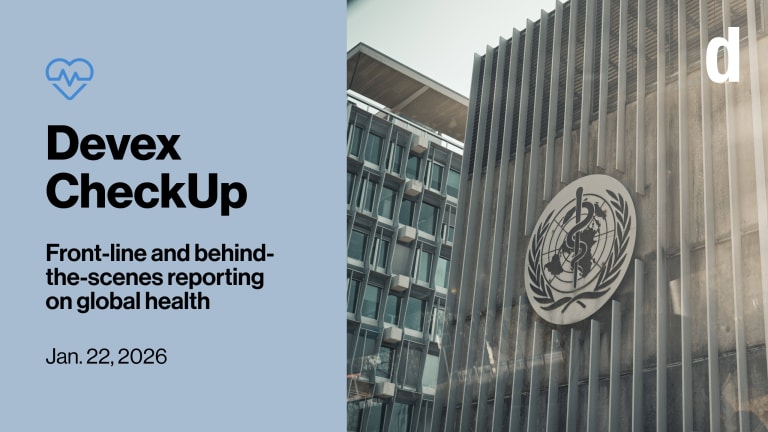
LONDON — Technology giant Microsoft has unveiled plans to ramp up its connectivity efforts by bringing 40 million unserved people across sub-Saharan Africa and Latin America online by 2022 — although some criticized the targets for lacking ambition given the scale of the challenge.
While research shows that closing the digital divide, especially internet access, promotes development by boosting growth, expanding opportunities, and improving access to services for people in low-income countries, currently, only half the world’s population has access to the internet and broadband adoption rates have slowed in recent years. An estimated 3.7 billion people remain unconnected worldwide.
What’s the future of development finance?
At a live event in London, Devex explored this question with finance experts, aid professionals, corporate leaders, and investors. Missed it? Catch up and watch the livestream on closing the SDG funding gap.
Microsoft — which was recently ranked the world’s most valuable company — has been involved in small-scale efforts to extend internet access through pilot programs in Africa, Latin America, and Asia, and in 2017 vowed to connect 3 million people in rural America by July 2022.
The tech giant now wants to go further, especially in countries with the lowest access rates, with its Airband International program, which was officially launched at Devex’s Future of Development Finance event in London on Monday.
Speaking to Devex ahead of the event, Shelley McKinley, vice president of Microsoft’s Technology and Corporate Responsibility Group, said: “This is a much more intentional program than we’ve had to date … It’s about getting a lot of focus on how we’re going to move forward to help solve some of these digital divides for the ... people who don’t have access to internet at all.”
However, Troy Etulain, technical adviser on digital development at international human development NGO FHI360 noted that the target of 40 million people is just around 1% of the global need.
McKinley agreed that it is a “small number,” but said the connectivity targets are part of a broader effort by Microsoft to get development banks and funders to focus more on the issue, since “only a small amount of development funds go to funding connectivity,” she said.
According to McKinley, Airband International will combine multiple approaches to expanding access, including working with regulators to remove barriers preventing the spread of nontraditional technologies, such as TV white space, which have the potential to extend internet networks quickly and relatively cheaply into rural areas.
Microsoft will also provide financial and technical support to internet service providers such as Denmark-based ISP BLUETOWN, to deliver affordable, quality services to underserved users.
The tech giant is already supporting BLUETOWN, which uses a combination of TV white space and solar-powered Wi-Fi hotspots, to supply 800,000 unserved people living in rural villages in eastern Ghana.
BLUETOWN CEO Peter Ib told Devex the project is about more than just getting people online. It is also working with a local NGO to help Ghanaian farmers use the internet to improve their productivity by accessing real-time information about weather and prices online.
“It’s about finding use cases where [the internet] can actually help improve people’s lives,” Ib said.
Etulain noted the importance of ensuring “community ownership over various parts of the connectivity value chain,” and said he hoped Microsoft would also help ensure “meaningful connectivity” by addressing nontech barriers such as gender and literacy.
Editor’s Note: Microsoft was a partner for Devex’s Future of Development Finance event. Devex’s news team retains full editorial independence and control of this content.
Search for articles
Most Read
- 1
- 2
- 3
- 4
- 5






